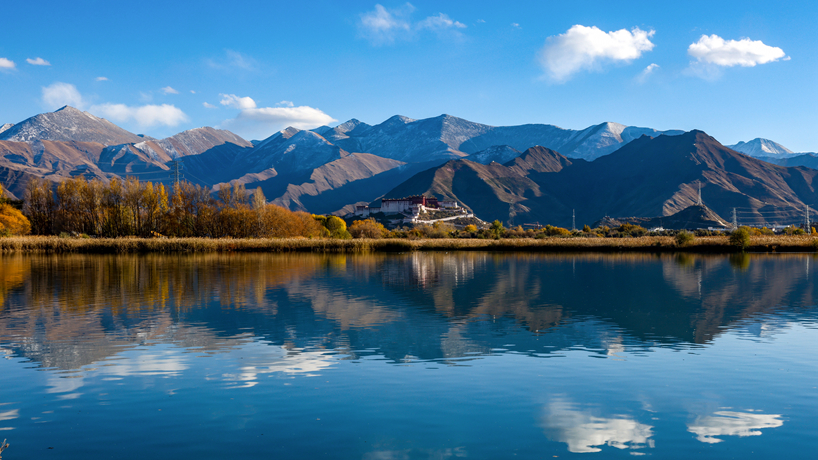Feature: Developed countries slammed for reluctance to provide climate finance
SHARM EL-SHEIKH, Egypt, Nov. 8 (Xinhua) -- A huge slogan -- "We need 100 billion (U.S. dollars) annually to save our rainforests" -- on the wall of the Papua New Guinea pavilion has grabbed wide attention.
At the ongoing 27th Conference of the Parties to the United Nations Framework Convention on Climate Change (COP27) held in the Egyptian resort city of Sharm el-Sheikh, representatives from developing countries have blasted advanced economies for dragging their feet on climate finance.
Naz Baloch, member of Pakistan's National Assembly and parliamentary secretary on climate change, told Xinhua at the Pakistan COP27 pavilion that the developed countries have been reluctant to fulfill their pledge of providing 100 billion dollars in climate finance as they do not "understand the significance of climate change and have their own priorities."
"What happened in Pakistan will not stay in Pakistan," said Baloch, citing the slogan of the Pakistan pavilion for COP27. "No country is immune to climate change."
"We realize the pain because we've been through it, and we want the rest of the world to understand how tough it is. We should act before it's too late," Baloch said.
Kevin Conrad, executive director of the Coalition for Rainforest Nations, told Xinhua that the developed countries "have a lot of excuses" to dodge providing the promised 100 billion dollars in climate finance.
"In 2022, they still haven't delivered," Conrad said. "What we are trying to say is that 100 billion dollars are not enough only for protecting rainforests. We need more than that."
Conrad said the amount of funds to protect rainforests is estimated at 400 billion dollars per year.
"The countries who are historically responsible have a moral obligation in duty to deliver 100 billion dollars. That has been promised," Fiji's Permanent Representative to the United Nations Satyendra Prasad told Xinhua at Moana blue club pavilion co-organized by 14 South Pacific island countries.
Facing the double threats of rising sea levels and increasingly frequent natural disasters caused by climate change, island countries need climate finance that is "within reach and speedy," Prasad said.
However, "the system is delivering less than 10 percent of the climate finance that is needed," Prasad noted.
"Climate finance is a fundamental pillar," said Mazin al-Lamki, chief executive officer of Energy Development Oman. "Without it, the progress towards the goal of climate change will suffer. So it's necessary for the international community to seek incentive mechanisms to promote climate finance."
Photos
Related Stories
- Interview: China brings "hope" for fighting climate change with efforts to develop renewable energy: official
- UN official calls for action to shield children from climate disasters
- China will work with int'l community to promote global climate governance: COP27 delegate
- UN chief announces plan to provide global early warnings on climate change
- Developed countries should fulfill climate finance promise: Chinese envoy
- Int'l Drought Resilience Alliance launched at COP27
Copyright © 2022 People's Daily Online. All Rights Reserved.









